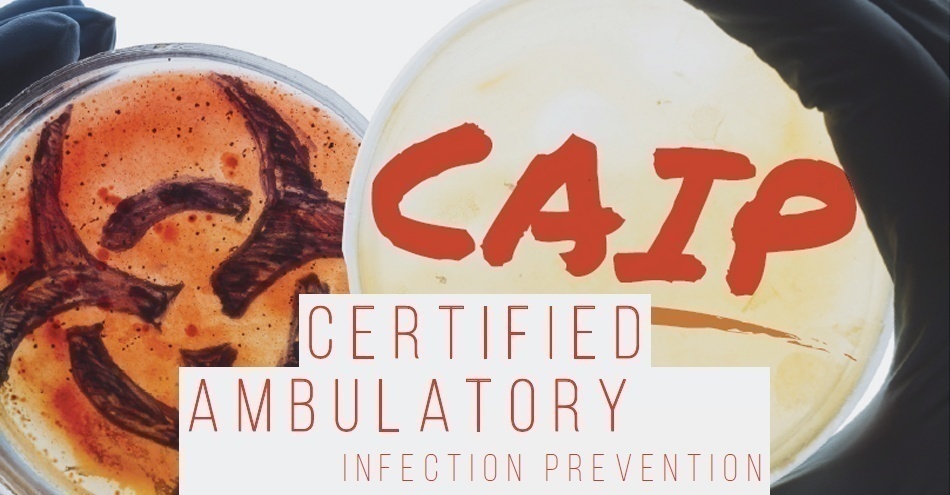By Don Sadler
Hospital infection preventionists have long been able to obtain the Certification in Infection Control and Prevention, or CIC, credential. But a similar credential hasn’t been available for infection preventionists who work in ambulatory surgery centers (ASCs).
Fortunately, this is about to change. Earlier this year, the Board of Ambulatory Surgery Certification (BASC) announced the creation of the Certified Ambulatory Infection Prevention, or CAIP, credential.
A Consistent Mechanism
BASC President John J. Goehle, MBA, CPA, notes that ASCs are required to have an infection control coordinator on staff who has received appropriate training to carry out his or her responsibilities.
“Up until now, though, there hasn’t really been any consensus on what type of training and certification would be appropriate in the outpatient setting,” he says. “The new credential will provide ASCs with a consistent mechanism to prove their compliance with the licensure, certification and accreditation requirements related to the training of infection control coordinators.”
According to Gina Throneberry, RN, MBA, CASC, CNOR, the Director of Education and Clinical Affairs for the Ambulatory Surgery Center Association (ASCA) and Executive Director of the BASC, those in the industry have long known that a certification for infection preventionists in the ASC industry has been needed.
“It’s a lengthy process to get a new credential up and running, with lots of moving parts and pieces,” says Throneberry. “We started this process all the way back in 2015.”
The first step was the creation of a job analysis task force.
“This task force was composed of ASC personnel who were experienced in infection prevention,” says Throneberry. “Next, we surveyed ASCA members to help us determine the specific activities and responsibilities to be performed by infection preventionists in an ASC.”
The task force, with assistance from a testing vendor, was then ready to create a content outline. Once the content outline was obtained, the CAIP writing committee began writing exam questions, which Throneberry says “was a very detailed process.”
Throneberry is excited to announce that the first CAIP exam will be administered between October 1 and October 31 of this year. Applications for the exam can be submitted electronically between August 1 and August 31 of this year.
The CAIP exam will include five separate sections that test knowledge in the following categories:
- Infection prevention program development, implementation and maintenance
- Infection prevention and control education and training
- Surveillance, data collection and analysis
- Infection prevention strategies
- Instrument/equipment cleaning, disinfection and sterilization

Why CAIP is Needed
For those who wonder why a separate credential is needed for infection preventionists working in ASCs versus those working in hospitals, Throneberry says the two environments are different from an infection control standpoint.
“For example, ASCs don’t perform emergent cases,” she says. “All procedures are outpatient and we know the patients are coming in. Also, ASCs don’t treat patients requiring airborne precautions.”
Infection prevention is just as high a priority in the ASC setting as it is in hospitals, Throneberry adds.
“Practically speaking, the CIC exam doesn’t work for our industry, so we needed to create an exam and certification that are unique to ASCs,” she adds.
According to Goehle, the goal in creating the CAIP credential is to provide a relevant pathway for ASC infection control coordinators to:
- Receive appropriate and relevant training.
- Provide an opportunity to demonstrate a high level of understanding of those responsibilities through the CAIP credential.
“The new CAIP credential will provide perioperative nurses with a well-defined educational pathway toward certification as an ASC infection control professional,” Goehle says. “And it will demonstrate to patients that the organization is committed to high-quality care, especially as it relates to infection control.”
Infection prevention and control is always on the surveyors’ radar, Throneberry adds.
“And it’s always on our mind – it’s something we strive for every day,” she says.

Excitement is Building
Throneberry and Goehle say that there has been tremendous feedback and excitement in the industry about the introduction of the new CAIP credential.
“The feedback has been overwhelmingly positive,” says Goehle. “Many professionals have noted that such a certification has been long-needed. The rollout of the education in anticipation of the new credential has been particularly well received.”
For example, Throneberry says it was standing-room only attendance at the ASCA winter seminar sessions where the new credential was discussed.
“There’s definitely a hunger out there for this kind of education and certification,” she says.
There will be two full days of infection prevention education at ASCA 2018 in Boston in April, Throneberry adds.
Here’s a sampling of some of the feedback the ASCA has received from industry professionals about the new CAIP credential:
“With the CAIP certification, ASC infection preventionists can show they are committed to developing the highest level of infection control skills,” says Lee Anne Blackwell, RN, BSN, EMBA, CNOR.
“Certification distinguishes the infection preventionist as a leader devoted to ambulatory surgery infection prevention standards and best practices and is a symbol of dedication to personal development,” says Lisa Berus, RN, MSN, MEd, CASSPT.
“The CAIP credential will allow clinicians to proudly display that they have achieved a certification because they want to be the best in the ambulatory industry when it comes to infection prevention,” adds Ann Geier, MS, RN, CNOR, CASC.
“CAIP is geared toward our needs and standards which, in some areas, are different from that of a hospital,” says Tammeria Tyler, RN, CIC. “In becoming CAIP certified, perioperative nurses will designate themselves as a certified professional in infection prevention in the ASC setting.”
“This is an exciting journey as the CAIP exam will be administered specifically for ASC infection preventionist to test knowledge distinctive to our industry,” adds Mary Ryan, BSN, MBA, CASC.
“Make sure your center’s infection preventionist is leading the way by becoming certified!”
Obtain a Candidate Handbook
If you’d like to learn more about the new CAIP credential, visit the CAIP website at aboutcaip.org.
You can download a Candidate Handbook that contains more details on the credential as well as exam policy and procedures, eligibility requirements and exam preparation.









